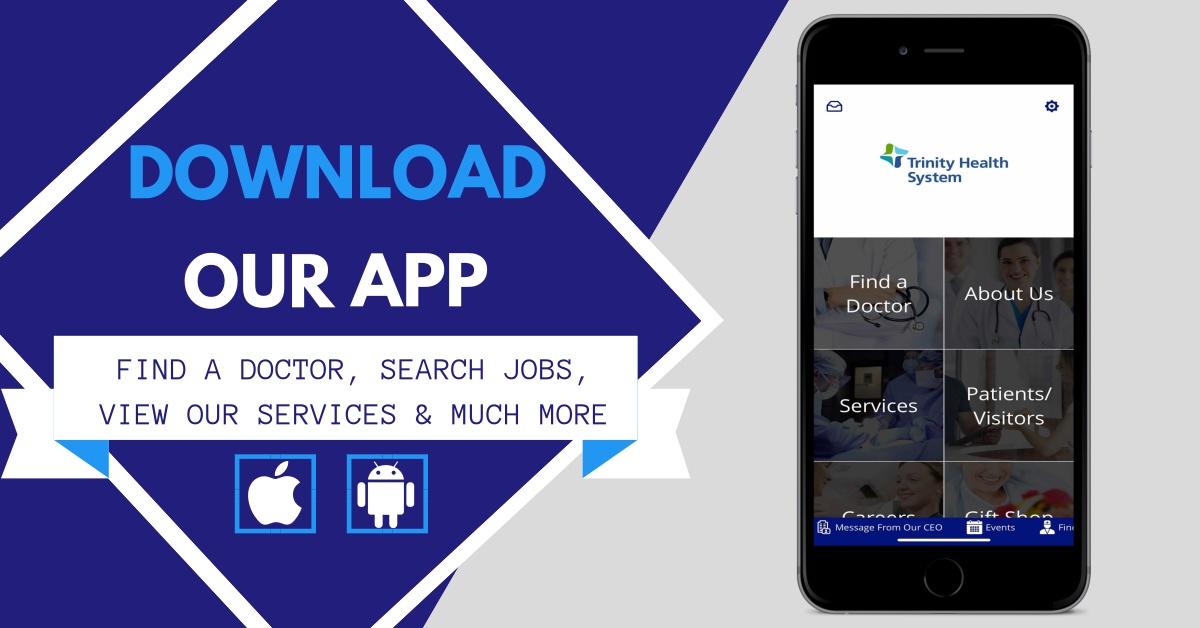Heartburn or Heart Attack? Learn how to tell the difference Download the guide now!
Chest pain happens for numerous reasons. The most important thing is to pay attention to chest pain; don’t ignore it!
The American Medical Association says that even if someone has been diagnosed with angina, they should get help immediately if they develop atypical symptoms like pain at rest or during sleep. Pain that doesn’t go away can indicate a heart attack, which requires immediate medical treatment.
Reasons you may be having chest pain:
Angina:
Angina is a recurring pain or discomfort in the chest. It happens when some part of the heart does not receive enough blood. Angina might feel like a squeezing or pressing pain, and might also extend into your arm and neck. You may also have difficulty catching your breath or you may start sweating. Frequently, the pain of angina and its accompanying sensations occur during physical exertion, like when you’re walking or shoveling snow. According to the U.S. Food and Drug Administration, women with angina may experience extreme fatigue. Once you stop the activity, the pain or other symptoms might go away. But that doesn’t mean the problem has gone away. Angina can be an important warning sign of heart disease. In other words, there may be damage or blockage in the arteries that supply blood to your heart. So, if you’re experiencing angina, it’s important to seek medical help. In the case of angina, even if the pain does go away, chest pain can be a warning sign of underlying problems that need help as well, so always contact a doctor if you’re experiencing this type of chest pain.
Arrhythmia:
A change in your heartbeat‚ whether it seems to skip a beat or it starts to beat faster or slower – can be very scary. But according to the National Institutes of Health, this type of change, called an arrhythmia (or dysrhythmia), is fairly common, especially as we get older. According to the American Academy of Family Physicians, an arrhythmia can be caused by a number of things including:
- Heart disease
- Stress
- Caffeine, tobacco or alcohol use
- Diet pills
- Certain cough or cold medicines
Sometimes there is no known cause for an arrhythmia. Although the occurrence of an arrhythmia does not necessarily indicate an underlying heart condition, AAFP says you should see a doctor if you experience an arrhythmia often, or if you have symptoms such as a rapid heartbeat (called “tachycardia”), shortness of breath or dizziness.
Cardiomyopathy:
Cardiomyopathy refers to heart problems when the heart can’t work the way it’s supposed to because of damage to the muscle. The damage can be caused in many ways like heart attacks, viral infections, alcoholism and severe hypertension but, according to the American Heart Association, sometimes you can’t find a reason. There are many types of cardiomyopathy. The National Heart, Lung and Blood Institute lists the following:
- Ischemic – Refers to heart muscle damage that results from coronary artery disease
- Dilated – Occurs when disease-affected muscle fibers lead to enlargement, or dilation, of one or more chambers of the heart.
- Hypertrophic – A growth of the muscle fibers in the heart walls. It leads to a thickening of the walls.
- Restrictive – When the walls of the ventricles (which are the pumps of the heart) stiffen and lose the ability to move blood.
Coronary microvascular disease:
Coronary microvascular disease is a type of heart disease that is difficult to diagnose. It usually results in chest pain, and that pain sends the patient to the doctor for tests. If those tests do not show any blockages in the main arteries to the heart, CMD may be the cause. CMD is the result of narrowing of the tiny arteries that supply blood and oxygen to the heart muscle. It is generally found in women. A smaller percentage of men also have the condition. In CMD, plaque accumulates in the very small arteries of the heart, causing narrowing and reduced blood and oxygen flow. CMD sometimes takes on the typical symptoms of large heart blockages such as a crushing chest pain, sweating and shortness of breath. But symptoms can also be vague and may include:
- Fatigue
- Upset stomach
- Pain in the jaw or shoulders
- Flu-like symptoms
- Anxiety
The National Heart, Lung and Blood Institute says that because of these uncertain symptoms, diagnosing CMD can be challenging for doctors. This is especially true if common screening tools for heart disease reveal nothing unusual.
Heart attack:
Each year, according to the National Institutes of Health, an estimated 1.5 million Americans suffer a heart attack or myocardial infarction. For nearly1/3 of them, the attack is fatal. But many of those deaths could have been prevented — if only the victim had received help in time. That’s why it’s so essential for all of us to know the warning signs of a heart attack. For all too many people, the American Heart Association says, a heart attack is the first time they learn they have heart disease. The warning signs that you’re having a heart attack can vary, but here are some common ones:
- Uncomfortable chest pain, pressure or a squeezing sensation in the chest that lasts for more than a few minutes.
- Pain that radiates to the shoulders, neck, jaw or arms.
- Chest pain accompanied by dizziness, sweating, nausea or shortness of breath.
Not all of these symptoms will be present in all cases. The American Academy of Family Physicians says symptoms may come and go; some people having a heart attack may experience no observable symptoms.
In addition, the U.S. Food and Drug Administration says that women are more likely to have so-called silent or unrecognized heart attacks. Women often have different signs of a heart attack than men. They are more likely to have nausea and pain high in the abdomen. They also may experience a burning in the chest that they dismiss as indigestion or heartburn. In women as well as men, the symptoms may subside and then come back. However, it’s still essential to get immediate medical help if you suspect a heart attack. The AHA says clot-dissolving drugs and surgery are most effective when used in the early stages of a heart attack. But studies show that many heart attack victims wait several hours before seeking help.


